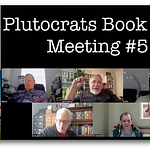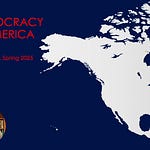In the summer of 2021 I was preparing for the following fall, when I would be teaching a 4000-level class in Historiography for the first time. I had taken historiography surveys at both the Masters and PhD levels, at Mankato State University and the University of Massachusetts, and had done historiographies of my teaching fields. But I hadn't taught it to undergrads yet.
I had several texts in mind, to have my students read from. Book passages and articles. But since a big part of the subject is understanding how historians' approach to the past, interests, assumptions, and (dare I say) biases have changed over time, I thought I'd dig into some of the books on my library's shelves, to discover and then illustrate that point.
The BSU Library holds a lot of history books, many of which are distributed across the shelves in different places, depending on what they are histories of. But in a back corner of the fourth floor, there's a bookshelf filled with historiographies and books on writing history, teaching history, etc. I took some time that summer, to pick up every one of them and see what they were about. Some weren't relevant to this project, but I may return to them. Others just weren't interesting to me at all. But SOME offer interesting glimpses into just what I was looking for: historians self-consciously discussing their work and the work of their peers.
When I found one of these books, I grabbed it and checked it out. Back at my office, across campus, I had a flatbed scanner I used to copy the chapters I want. Very rarely, I'll decided I needed to have the whole book, and then I usually bought it on Abe Books. For example, I ordered an old hardcover copy of Carl Becker's Everyman His Own Historian: Essays on History and Politics. That was one of the interesting things about this bookshelf full of old volumes: they were chosen by librarians in previous years (or decades), so there was some logic to what was included, even if I didn't always agree with the choices.
Once I had scanned the passages I want, I ran the resulting pages through Adobe Acrobat Pro and made them a single file, which I named using the publication date and author name (like 1935Becker in the case of the book I mentioned). I ran the OCR module on the pdf, so I (and students) would be able to highlight it, and then I made a Zotero entry by capturing the information in the book's catalog page, and I attached the pdf. I had to upgrade my Zotero storage plan to 6GB from 2GB. I suppose I could have gone into folders I was not using currently and archived their pdfs onto local or cloud storage. But I prefer to have the pdfs available in Zotero, and I figured it was a good cause, so I sent them some more money.
Once I had the pdfs in Zotero, I read them using my iPad, and highlighted the interesting bits. The next step was to review the highlights and make some notes. In one of the books, a 1937 volume called A History of Historical Writing by Harry Elmer Barnes, I found an interesting chapter about "The World War and the Clash of Nationalism with Scholarship". The author's contention was that the war had deranged the otherwise objective perspective of academic historians with a "revival of patriotic enthusiasm". This was extreme in Europe, where French historians said things like, "Lying is the national industry of the Germans, their very system of government. It is on lies that the Hohenzollerns established the Prussian power, and later, for the benefit of Prussia, the German power." H.G. Wells had helped produce anti-German propaganda. But even in the U.S., "The most obsessed of the historical war propagandists, William Roscoe Thayer, was elected president of the American Historical Association." The reason for the American derangement, the author said, was that "the United States was in no real danger of attack. In the absence of the actual sound of real cannon fire, the American mob had to be stirred up by a cannonade of fierce but fictitious rhetoric. Propaganda was indispensable for building up American morale and bloodlust." This was timely, since I was reading a lot about propaganda, hegemony, and Common Sense. Barnes went on to say that "For nearly a decade after the war most of the men elevated to the presidency of the American Historical Association were those who had been conspicuous for their professional services to the Allies." This was an interesting charge, which he apparently wrote more about in another book called In Quest of Truth and Justice in 1928. Barnes was apparently a big fan of Germany, which made him the "father of American revsionism" in the 1920s, but he became a holocaust denier in the 1950s. An interesting character and a career that might merit a closer look. And in any case, the fact that he went off the deep end later doesn't necessarily mean he had no legitimate critiques in the early years.










